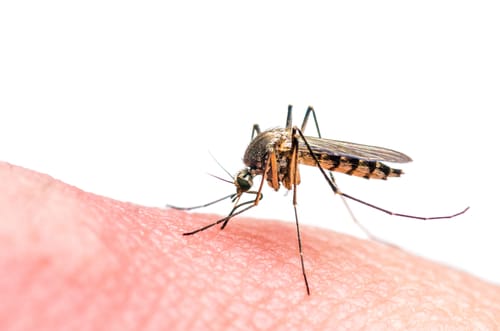At the end of April 2016, DHEC announced the first documented case of the Zika virus in South Carolina.

Generally, Zika related symptoms usually last from a few days to a week, and may include:
- Fever
- Rash
- Joint pain
- Conjunctivitis (red eyes)
While mosquitoes in South Carolina are not known to currently carry the Zika virus, DHEC encourages all South Carolina residents to exercise normal mosquito bite precautions. Recommended mosquito bite precautions include: use of insect repellant, wearing long sleeved clothing and long pants, and staying in places which have air conditioning or have window and door screens.
Taking precautions to prevent the Zika virus is especially important for women who are or may become pregnant, because birth defects have been linked to children whose mothers were infected with the virus during pregnancy. Although an outbreak in South Carolina may be unlikely, women who are pregnant or may become pregnant are advised to take special precautions if planning to travel to Mexico, Central or South America, or the Caribbean Islands. Given that at least one case in Texas showed that the virus has been transmitted sexually, precautions should also be taken by a partner of someone who is, or may become, pregnant. For more information on avoiding sexual transmission of the disease, visit the South Carolina DHEC website.
According to the CDC, Zika related birth defects include being born with a small head, excessive scalp skin, club foot, and contractures. A study conducted in Brazil concluded that abnormal head size was the most common Zika birth defect.
DHEC and the Richland County Vector Program have also provided guidelines for reducing the number of mosquitoes around your home. Recommendations include:
- Getting rid of, and preventing, standing water
- clearing drainage ditches of debris and weeds;
- removing debris from roof gutters
- keeping boats overturned, drained, or covered;
- empty, overturn, or remove water-holding containers including tires, cans, bottles, buckets, flower pots, etc;
- stocking ornamental ponds with top-feeding minnows;
- changing the water in pet dishes, birdbaths and containers used to root plants at least weekly;
- placing a screen on a rain barrel to prevent mosquitoes from accessing the collected water; use the collected water as quickly as possible.
- Treating water that can’t be drained, and properly maintaining a swimming pool;
- Avoid prolonged outdoor activity during dawn, dusk, and night when possible; and
- Using an EPA registered insect repellant containing DEET, picaridin, IR3535 or oil of lemon eucalyptus according to label instructions.
The full list of DHEC’s recommendations can be accessed here. If you have taken the necessary steps to prevent heavy mosquito activity around your home but still find heavy populations of the insect, you may be able to receive help from a local mosquito control agency, or your local county vector program. Our fellow South Carolinians can find a full list of agency contact information here.
Richland County and Lexington County Vector programs, will be conducting surveillance on mosquito populations, treating larval breeding sites, and spraying for adult mosquitoes in densely populated areas of the County. Beekeepers and people allergic to the products resmethrin or permethrin are urged to notify Vector Control by calling the County’s Ombudsman office.

